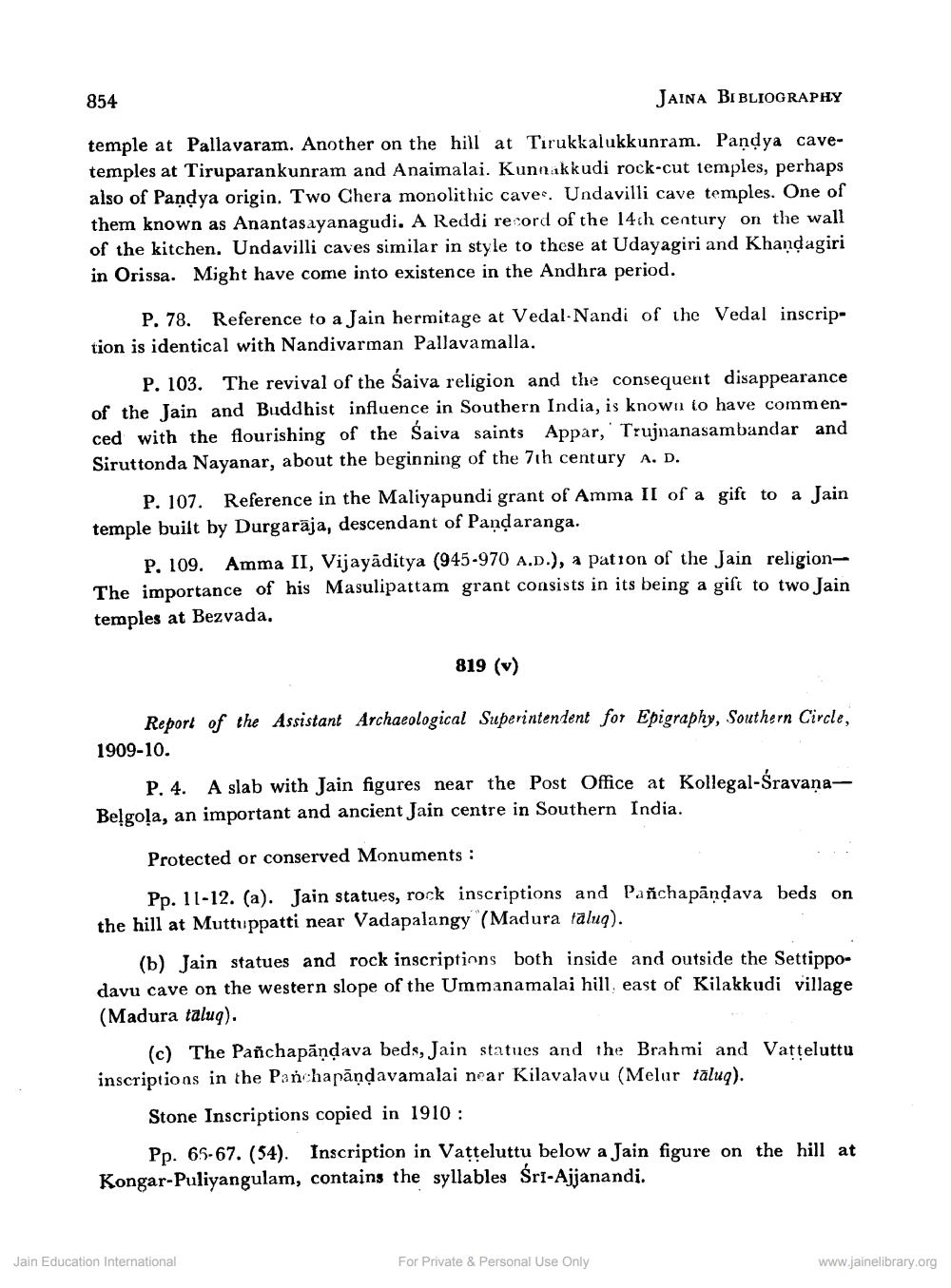________________
854
JAINA BIBLIOGRAPHY
temple at Pallavaram. Another on the hill at Tirukkalukkunram. Pandya cavetemples at Tiruparankunram and Anaimalai. Kunnakkudi rock-cut temples, perhaps also of Pandya origin. Two Chera monolithic cave. Undavilli cave temples. One of them known as Anantasayanagudi. A Reddi record of the 14th century on the wall of the kitchen. Undavilli caves similar in style to these at Udayagiri and Khandagiri in Orissa. Might have come into existence in the Andhra period.
P. 78. Reference to a Jain hermitage at Vedal-Nandi of the Vedal inscrip tion is identical with Nandivarman Pallavamalla.
P. 103. The revival of the Saiva religion and the consequent disappearance of the Jain and Buddhist influence in Southern India, is known to have commenced with the flourishing of the Saiva saints Appar, Trujnanasambandar and Siruttonda Nayanar, about the beginning of the 7th century A. D.
P. 107. Reference in the Maliyapundi grant of Amma II of a gift to a Jain temple built by Durgaraja, descendant of Pandaranga.
Amma II, Vijayaditya (945-970 A.D.), a patron of the Jain religionThe importance of his Masulipattam grant consists in its being a gift to two Jain temples at Bezvada,
819 (v)
Report of the Assistant Archaeological Superintendent for Epigraphy, Southern Circle,
1909-10.
P. 4. A slab with Jain figures near the Post Office at Kollegal-SravanaBelgola, an important and ancient Jain centre in Southern India.
Protected or conserved Monuments :
Pp. 11-12. (a). Jain statues, rock inscriptions and Pañchapāṇḍava beds on the hill at Muttuppatti near Vadapalangy (Madura falug).
(b) Jain statues and rock inscriptions both inside and outside the Settippodavu cave on the western slope of the Ummanamalai hill, east of Kilakkudi village (Madura talug).
(c) The Pañchapändava beds, Jain statues and the Brahmi and Vatteluttu inscriptions in the Pañchapäṇḍavamalai near Kilavalavu (Melur talug).
Stone Inscriptions copied in 1910:
Pp. 65-67. (54). Inscription in Vatteluttu below a Jain figure on the hill at Kongar-Puliyangulam, contains the syllables Śri-Ajjanandi.
Jain Education International
For Private & Personal Use Only
www.jainelibrary.org




